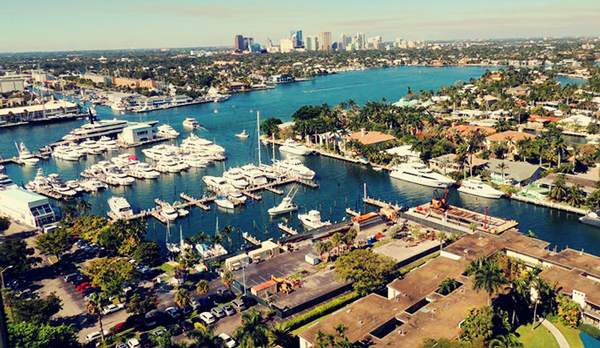Trending
Airbnb says Florida hosts generated $45.7M in tax revenue
Miami-Dade and Broward counties accounted for 40% of the total, or $18.3M

As Airbnb continues to duke it out with Florida’s hotel industry over property owners’ rights to rent their homes to vacationers, the tech company announced its hosts are helping fill up state and local government coffers with a new lucrative cash stream.
In 2017, Airbnb collected and remitted $45.7 million in sales and local bed tax revenue to the Florida Department of Revenue and 39 counties that have signed agreements with the vacation rental platform, the company’s spokesperson said in a press release. Miami-Dade and Broward counties accounted for 40 percent of the total, or $18.3 million.
The $45.7 million in tax revenue is more than double the $20 million Airbnb remitted in 2016, according to the spokesperson, who attributed the increase to the continued growth of vacation rentals in Florida and six major tax agreements Airbnb secured in 2017 with Miami-Dade, Broward, Sarasota, Polk, Hillsborough and Leon counties.
In 2017, Airbnb hosts in Miami-Dade and Broward raked in $134.6 million and $45 million in income, respectively, the most of any other counties in the state. Both counties remitted roughly $13 million sales tax revenue to the Florida Department of Revenue.
In addition, Airbnb generated $3.3 million in bed tax revenue in Miami-Dade, where the company reached an agreement to collect three bed taxes totaling 6 percent from its 6,800 hosts in the county. In Broward, 3,200 Airbnb hosts generated $1.87 million from the collection of a 5 percent tourism tax. Both measures were enacted in April of last year and the counties began collecting the taxes a month later. Miami Beach, which enacted tough restrictions on short-term rentals, is excluded from the Miami-Dade bed tax collections.
Yet, as Airbnb experienced a 73 percent growth in its Florida operations last year, the hotel industry continues to fight the company and other online vacation rental firms. For instance, the Florida Restaurant and Lodging Association is advocating Airbnb hosts and property owners who use other short stay vacation rental platforms be subjected to the statewide compliance system for all commercial lodging establishments.
“Far from the concept of ‘home sharing,’ where homeowners welcome a guest into their residence on an occasional basis, this new phenomenon involves commercial operators acquiring and listing multiple units in the same residential neighborhood and/or listing these units in a “revolving door” fashion,” wrote lodging association CEO Carl Dover in a recent op-ed. “In other words, these real estate speculators are operating de facto hotels without adhering to the common-sense regulations and tax obligations every other hotel or inn in the state must follow.”
Dover’s group, hotel operators and local governments also oppose a pending state bill that would prohibit cities and counties from passing ordinances that regulate the leasing of homes and rooms for short-term rentals. The bill has sailed through two committees and could be voted on by the state Senate as early as next week.
In its press release, Airbnb’s spokesperson Benjamin Breit argues statewide data compiled by Visit Florida shows short-term rentals complement, rather than compete, with the hotel industry because of the state’s strong growth in occupancy rates, prices and revenue during 2017.
“This suggests that vacation rentals on Airbnb and other platforms are opening up the state to a new demographic of tourists,” Breit wrote, “by catering to travelers who are less able to afford hotels, those who desire to stay in neighborhoods or cities that lack hotels, and families who prefer to vacation together under one roof.”
Airbnb began remitting state sales tax revenue on behalf of its 40,000 hosts in 2015, when the company signed an agreement with the Florida Department of Revenue. Airbnb hosts generated $33 million in sales tax revenue and $12.7 million in local bed tax revenue last year, according to the press release.




